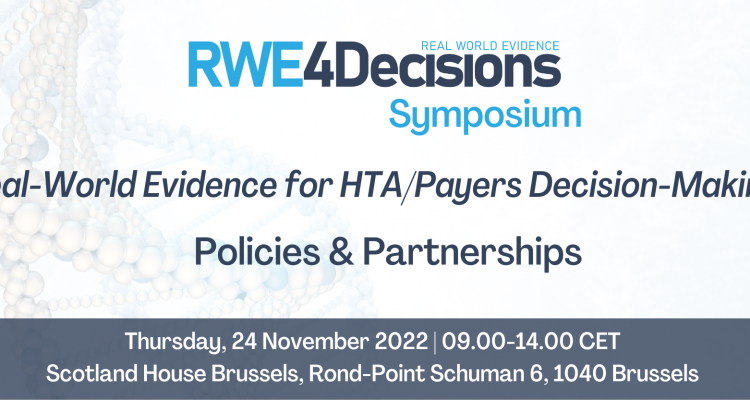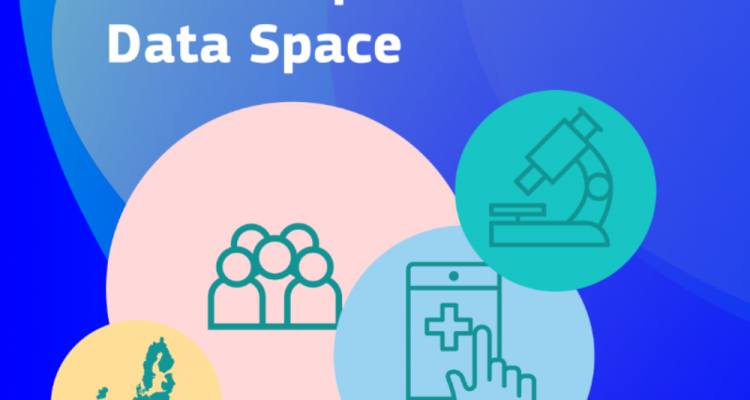RWE4Decisions welcomes the European Commission’s proposal for a European Health Data Space (EHDS): it is an ambitious step forward to systematically organise health data in Members States according to aligned, stringent quality standards; with structures to enable well-governed access to data that could improve patient care, support research and innovation and inform policy.
The EHDS will contribute to a sustainable real-world data (RWD) ecosystem by addressing the current fragmentation and lack of health data infrastructure within and across Member States, making sure the data are interoperable and high-quality, thereby enabling a learning healthcare system that supports evidence-based decisions by healthcare professionals, policy-makers, regulators, HTA authorities, payers, citizens and patients, as well as industry.
The health data of European citizens can provide rich insights to inform medical research and policy-making. The secondary use, and the use of real-world evidence (RWE), can improve outcomes and boost innovation to the benefit of patients.
The EHDS can play a significant role in ensuring patients get faster access to new treatments. For this to happen, proper inclusion of all relevant stakeholders is required to increase use and acceptance of secondary data by regulators and payers, also via the support of other legislative measures (pharmaceutical legislation; regulatory guidance).
RWE4Decisions will be monitoring the development of the proposal through the European Parliament and the Council. We encourage policy-makers to take into account the following aspects in the negotiations:
1.
In the interests of patients and citizens, strong safeguards for security and privacy must be in place and the EHDS should look to reconcile the fragmented and differing interpretation of GDPR rules, which are blocking secondary use of RWD in some jurisdictions. The format and context of so-called ‘one-time consent’ needs to be worked out to enable people to indicate what they want to share and when. To tackle the fragmentation and differing interpretations, it must be assured that EHDS legislation is uniformly implemented.
2.
The value of health data for patient safety, regulatory purposes and policy-making is highlighted, and of high importance, but we feel that use by healthcare payers is missing throughout the proposal. We note the support for development of innovative health technologies over the life cycle; however more emphasis on using health data to assess the value of these technologies by measuring outcomes that matter to patients is necessary to better enable the use of such technologies.
Payers recognise that the uncertainties associated with highly innovative technologies – particularly those for rare conditions – could be reduced if high quality real-world data were available. Such RWD are needed during health technology development and to support conditional reimbursement processes and optimise treatment use. The EHDS provides a secure framework for secondary use of health data, both nationally and cross-border, that could address these needs. However, payers have specific requirements relating to timeliness and cross-border collaboration that are different to those of regulators or policy makers. Hence payers need to be consulted in the development of the EHDS and be involved in its governance structures. Furthermore, national investments in infrastructure, processes and capacity should specifically consider payer needs.
3.
Health data access bodies in Member States will be key to promote and facilitate the secondary use of health data by providing access to electronic health data to third parties. It is key that coordination at the European level across these bodies is ensured, based on a robust legal and governance framework. It is important that those bodies are well resourced and work uniformly across the EU.
4.
The EHDS should take a holistic approach, taking into account the use of RWD in the full lifecycle of health technologies. It should enable high-quality, interoperable data to be obtained pre-authorization to understand epidemiology and care pathways, and support development of RWE after initial reimbursement. This is particularly needed for transformative and potentially curative therapies, coming to market via expedited regulatory approvals with limited evidence from traditional clinical development programmes. It is anticipated that RWD should enable the generation of additional evidence to address uncertainties, inform conditional reimbursement agreements, and optimize appropriate use in daily practice.
The Commission should endorse a Common Data Model approach, as proposed by EMA’s DARWIN EU and EHDEN. Additionally, it is important to ensure that provisions to improve data sharing are built on international interoperability standards.
5.
The EHDS governance model should be transparent, consistent, and inclusive in order to foster trust. Legislators should work collaboratively with all stakeholders, to ensure that requirements meet the needs of health professionals, patients, public health bodies, HTA authorities, payers, academia, and industry.
Download full submission here: RWE4Decisions feedback consultation on EHDS_FINAL


